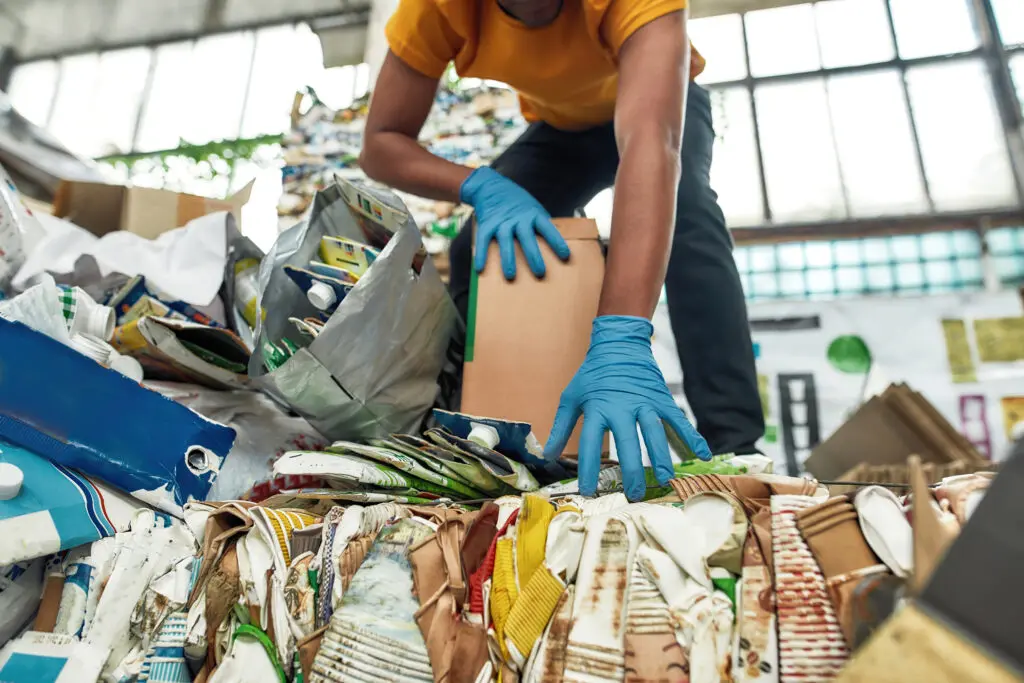A profound shift in how Europe approaches recycling would support the EU’s broader industrial and environmental agenda, according to the European Recycling Industries’ Confederation (EuRIC).
Proposals such as doubling the rate of circular materials used by 2030, restricting exports of only unprocessed waste, protecting free and fair trade, and prioritising technologies that are both circular and driving down carbon emissions, are set out in EuRIC’s strategic priorities for the next five years.
The document, subtitled ‘Bridging Policy Ambition with Industrial Reality’ calls for enhanced global competitiveness of the European recycling sector through ‘balanced trade policies and robust promotion of circular materials to position Europe as a leader in sustainable resource management’.
Recycling’s crucial role
EuRIC secretary general Emmanuel Katrakis insists recycling is central to Europe’s green industrial transition. ‘To ensure the EU continues to lead in the race towards a low carbon and circular economy while upholding a competitive industrial framework, EuRIC calls on EU legislators to explicitly link circular economy objectives with climate policies and to endorse measures that will bolster the competitiveness of the European recycling sector both within the EU and on a global scale.’
EuRIC advocates for the advancement of eco-design, pushing for policies that incentivise the use of recycled materials in line with the European Green Deal. It acknowledges the EU’s progress in incorporating recycled content targets but calls for more ambitious measures.
As a benchmark, EuRIC calls for a doubling in the share of the circular materials use rate from 11.5% in 2022 to 23% by 2030 and to link the gradual increase to carbon savings.
Lower emissions
It backs a Green Industrial Deal 2.0, advocating ‘EU policy shall prioritise for its twin transition, whenever available, technologies that can make a dual leap, namely circular – thus switching feedstock and driving up circular materials’ quality – and climate-friendly – reducing carbon emissions.’
Fundamentally, the strategy believes trade remains essential to the competitiveness of the recycling industry. ‘Recyclers fundamentally oppose exporting waste problems outside the EU, as it results in both material loss and environmental harm. Yet, the broad definition of waste under EU law confuses unprocessed trash with high-quality recycled materials, which are key enablers of a circular and low-carbon economy.’
EuRIC reasserts its argument that restricting exports of materials recovered by recycling without sufficient demand for recycled materials in Europe will ‘critically hamper the EU’s recycling industry competitiveness’ and its ability to better serve domestic and global markets.
Proposals for policy makers include:
- Restricting/banning exports only of unprocessed waste
- Protecting free and fair trade of raw materials from recycling used in production processes both inside and outside European borders
- Incentivising the use of recycled materials in European circular value chains, particularly with recycled content targets for finished and semifinished products.
- Protecting the EU market from imports of products which do not meet REACH standards.
- Promoting investments in innovative processes that enhance the quality of recycled raw materials and the overall competitiveness of the recycling industry.
View the full document here >>
Don't hesitate to contact us to share your input and ideas. Subscribe to the magazine or (free) newsletter.



